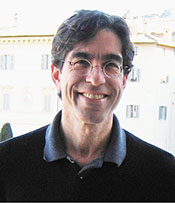非常抱歉,
你要访问的页面不存在,
非常抱歉,
你要访问的页面不存在,
非常抱歉,
你要访问的页面不存在,
验证码:

职称:Professor
所属学校:Indiana University-Bloomington
所属院系:Hutton Honors College
所属专业:Philosophy
联系方式:855-2539
In 1926, the Cambridge philosopher and mathematician Frank P. Ramsey wrote a paper, "Truth and Probability," in which he made two startling claims. He claimed that (a) if they are to be consistent, a person's degrees of belief in propositions (which measure how confident she is in the truth of the propositions) must obey the probability calculus; and (b) one can establish as much by an argument that appeals to nothing but principles that specify conditions under which a person's preferences count as rational. Some thirty years later, these two claims became the foundation stones for Bayesian decision theory . One focus of my research has been to assess what there is for an epistemologist to learn from Bayesian decision theory. My contention is that, suitably formulated, Ramsey's claims constitute essential contributions to epistemology-including epistemology as we ordinarily think of it: the study of justified belief and knowledge. I argued as much in my book, Decision Theory as Philosophy (Cambridge 1996). And I continue to work out the epistemological import of Ramsey's ideas for contemporary epistemology.
Since 2002 Indiana University (Department Chair, 2003-2006) 1981-2002 University of Wisconsin-Milwaukee (Department Chair, 1995-1998) 1985-1986 Visiting Associate Professor of Philosophy, University of Pittsburgh 1983-1984 Visiting Assistant Professor of Philosophy, University of Pennsylvania 1978-1981 Southern Methodist University